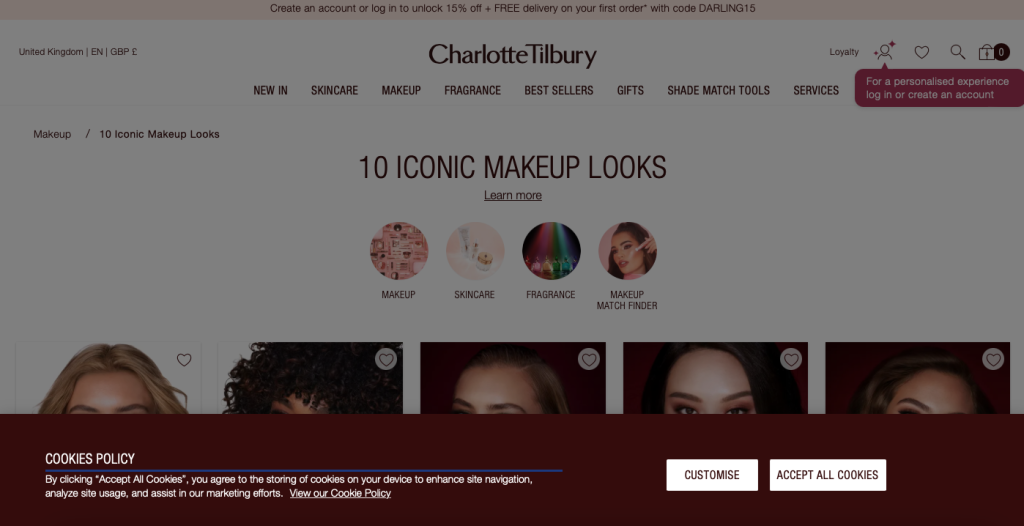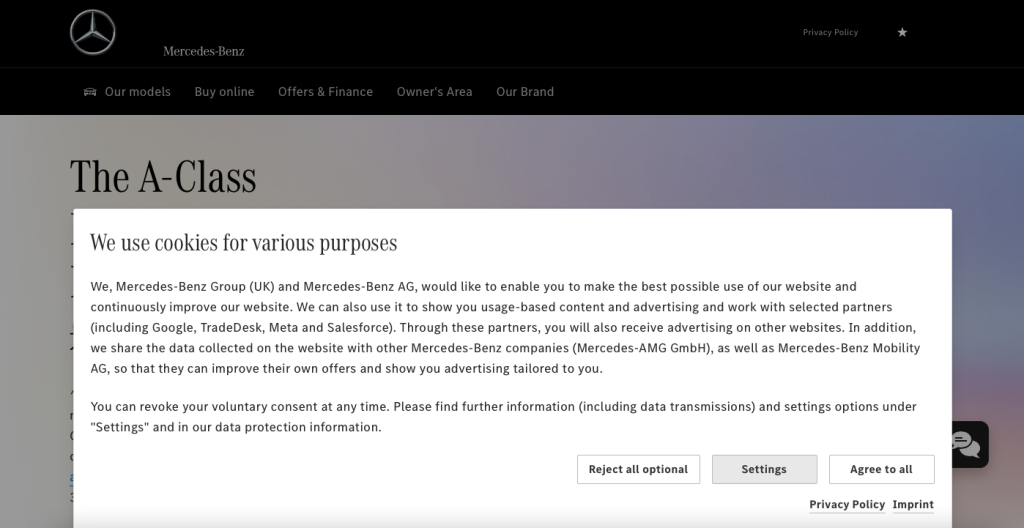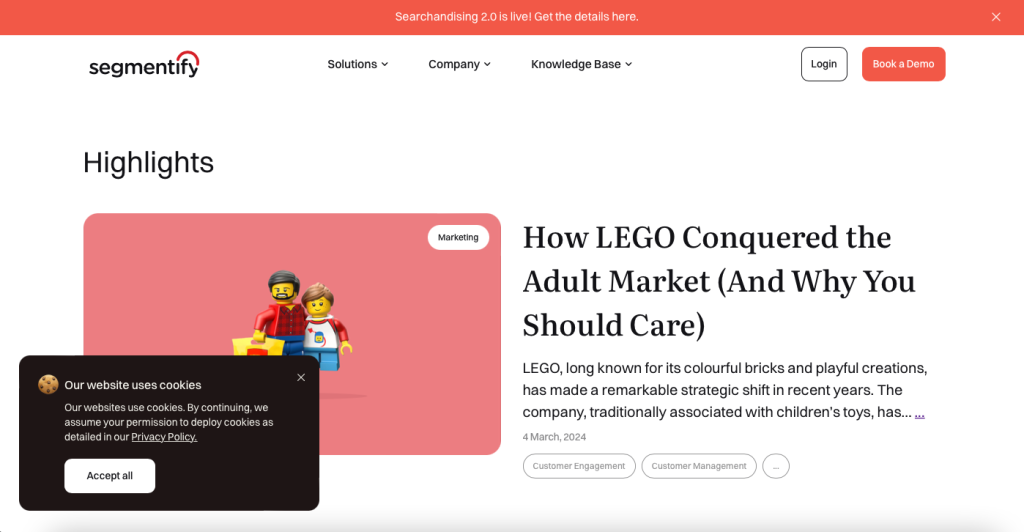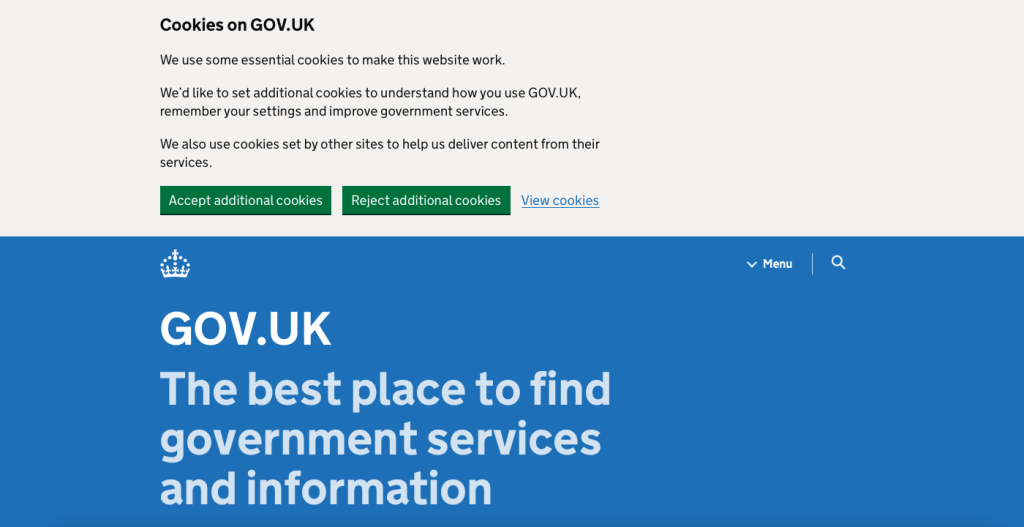Our websites use cookies. By continuing, we assume your permission to deploy cookies as detailed in our Privacy Policy.
Top 5 Cookie Consent Management Platforms & Web Plugins
Getting user consent is key to following privacy laws like GDPR and CCPA. However, there’s a right way to ask for, store, and use that permission.
That’s why it’s so critical for companies to use special tools to follow privacy rules and build trust with customers.
This article will explain what cookie consent is, how it works, why businesses must collect it, and what are the requirements. Then, we’ll examine the best Consent Management Platforms (CMPs) and Cookie Consent WordPress Plugins in the market.
Key Takeaways
- User consent is crucial to comply with privacy regulations like the GDPR and CCPA.
- However, there’s a correct way to ask for, store, and use the said user consent. That’s why businesses need special tools to adhere to these rules and standards.
- The best cookie consent management solution depends on your website’s needs and complexity. For example, website traffic, number of cookies used, budget, and desired level of customisation.
What is Cookie Consent?
Cookie consent refers to a user’s permission for a website to store cookies on their device. Cookies are small data files that websites use to track user behaviour, remember preferences, and personalise the browsing experience.
Here’s a breakdown of the process:
- User visits website: When a user visits a website, a banner or pop up typically appears informing them about the cookies used and requesting their consent.
- Consent options displayed: Users are usually given options like “Accept All Cookies”, “Reject All Cookies”, or a more granular selection of cookie types they consent to (e.g., advertising cookies, analytics cookies).
- Storing consent: Based on the user’s choice, the website stores their consent preference and uses cookies accordingly.
Why Do You Need to Collect Cookie Consent?
In essence, cookie consent is not just a legal requirement, but also a good practice for businesses to build trust and transparency with their customers.
It ensures users understand how their data is collected and used, while allowing businesses to gather valuable information for personalisation and targeted marketing, with proper consent, of course.
1. Data Privacy Regulations
Data privacy regulations like GDPR and CCPA are drawn up to give users more control over their data and how it’s used. They require websites and businesses to obtain user consent before storing certain types of cookies.
Failing to obtain proper cookie consent can lead to hefty fines under these data privacy regulations.
And thanks to Google’s push to eliminate third-party cookies from use, adhering to these privacy regulations became even more important than before. While this push promotes collecting first-party data, obtaining user consent multiplied its significance.
2. Trust and Transparency
Users are increasingly concerned about online privacy and how their data is collected. Hence, why data privacy regulations are being introduced or updated regularly.
By clearly explaining what cookies are used for and obtaining user consent, businesses demonstrate transparency and respect for user privacy. This can help build trust with customers and enhance their overall experience with the brand.
3. Improved User Experience
Cookie consent allows users to control their data and choose what information they share with websites. This can lead to a more positive user experience, as users feel empowered and in control of their privacy settings.
Cookie Consent Banner Examples
From eCommerce to government agencies to tech services, all websites need cookie consent banners. The style, placement, and content, however might be subjected to change:
1. Charlotte Tilbury Beauty
Founded by the British makeup artist with the same name, Charlotte Tilbury is one of the UK’s most well known cosmetics brands.
The company website uses a footer banner that links to cookie customisation settings, where the user can decide which type of cookies they want to opt in for.

2. Mercedes Benz
The renowned automobile manufacturer uses a cookie consent pop-up that takes up the .
At this point CookieYes reminds us that if you use cookie consent pop-ups, you are expected to give users the option to reject the cookies. That’s because cookie walls are banned under EU cookie consent regulations.

3. Segmentify
Segmentify uses a bottom-left cookie consent pop-ups with a direct link to its Privacy Policy.

4. GOV.UK
The official website for the UK government uses a top banner to ask for cookie consent.

Cookie Consent Requirements
Cookie consent requirements can vary depending on the specific data privacy regulations in each jurisdiction. However, some general principles apply in most regions with cookie consent laws:
1. Transparency
Businesses must inform users about the cookies they use, what data they collect, and how it’s used. This information should be presented in a clear, concise, and easily accessible way, typically through a cookie banner or privacy policy.
2. Explicit Consent
Users must be able to give their consent freely before cookies are stored on their devices. This means consent shouldn’t be pre-checked or bundled with other terms and conditions. Users should have a clear way to accept, reject, or customise their cookie preferences.
3. Granular Control
Some regulations, like GDPR, advocate for granular consent. This means users should have the option to choose which types of cookies they want to allow (e.g., essential cookies for website functionality, analytics cookies, advertising cookies).
4. Opt-Out Mechanism
Users should have a simple and easy way to withdraw their consent at any time. This could be through a link in the cookie banner, privacy policy, or account settings.
5. Keeping Consent Records
Businesses may be required to keep records of user consent for a certain period, as mandated by the specific regulation.
IMPORTANT NOTE: Take note that these are general guidelines. For specific cookie consent requirements, it’s always recommended to consult with a legal professional or refer to the official guidance documents of the relevant data privacy regulations that apply to your business.
How to Choose Your Cookie Consent Management Solution
When it comes to choosing cookie consent management solutions, you’re faced with two different categories of options: Cookie consent management platforms (CMPs) and cookie consent web plugins.
| Feature | Cookie Consent Management Platforms (CMP) | Cookie Consent Web Plugins |
|---|---|---|
| Functionality | Comprehensive solution for cookie consent management | Simple website builder extension for cookie consent |
| Features offered | – Cookie scanning – Consent banner creation – Consent management – Reporting & analytics | – Limited features, may just collect consent |
| Benefits | – Most powerful and flexible solution – In-depth user consent management – Advanced analytics | – Integrates with website builder – Easy to use |
| Drawbacks | – Most expensive option – Requires technical expertise to set up | – Limited functionality – May not be customisable |
| Best suited for | – Complex websites with many cookies – Businesses with strict data privacy requirements | – Websites built with website builders (e.g. WordPress, Wix) |
The best cookie consent management solution depends on your website’s needs and complexity. Consider factors like website traffic, the number of cookies used, budget, and desired level of customisation.
Now, let’s examine the market’s best solutions:
Top 5 Cookie Consent Management Platforms
1. Enzuzo
Enzuzo emphasises user experience and offers features like multilingual display and consent, advanced data privacy functionalities, and strong customer support. It is best suitable for those looking for an all-round CMP.
Pricing: Depends on specific needs.
2. CookieYes
CookieYes is known for its user-friendly interface and affordability. It’s a good option for businesses starting out with cookie consent management. You can build a fully customised cookie banner that matches your website’s look, record user consent effortlessly, and keep track of everything in one place.
Pricing: 14-day free trial. Pricing plans depend on specific needs.
3. OneTrust
OneTrust is a comprehensive platform catering to larger businesses with advanced features for managing complex cookie ecosystems and integrations with marketing automation tools.
Pricing: Available upon request.
4. TrustArc
TrustArc is a well-established solution from a leading privacy and security company, offering global reach and support for various compliance regulations. It is a good option for businesses operating internationally or with strict data privacy requirements.
Pricing: Available upon request.
5. Cookiebot
Cookiebot is a perfect CMP for those looking for simplicity and automation. It offers a user-friendly platform with features like automated cookie scanning and consent management workflows.
Pricing: 14-day free trial. Pricing plans depend on specific needs.
Top 5 Cookie Consent WordPress Plugins
While Cookie Consent Management Platforms (CMPs) offer a comprehensive suite of features, sometimes a simpler solution is all that’s required.
If you use WordPress to manage your website, then a cookie consent plugin is the easiest way to implement cookie consent functionality. Here are the top 5 options to consider:
1. Complianz
Complianz is a well-regarded plugin with a free plan that covers essential GDPR compliance needs. Its paid plans offer additional features like cookie scanning, consent logs, and create custom cookie consent messages.
Pricing: The plugin itself is free. However, Complianz offers a Full Privacy Suite for WordPress on Complianz.io with more features.
2. Cookie Notice
Cookie Notice is a simple and free plugin that offers a basic cookie consent banner and limited customisation options. It is compatible with GDPR regulations, and it offers a variety of features such as the ability to collect consent for different types of cookies, and to create custom cookie banners.
Pricing: Free
3. WP AutoTerms
WP AutoTerms focuses on generating legal documents like privacy policies and terms of service, but it also includes a basic cookie consent banner feature.
Pricing: Free, but a premium licence is also available to purchase with a one-time fee.
4. WP Cookie Consent
WP Cookie Consent is a popular and easy-to-use plugin that allows you to create a cookie consent banner and cookie policy for your WordPress website.
It is compatible with GDPR and CCPA regulations and offers a variety of features such as the ability to collect consent for different types of cookies, and to create custom cookie banners.
Pricing: Free. A premium version is available as well.
5. CookieYes GDPR Cookie Consent
CookieYes GDPR Cookie Consent is a free plugin that allows you to add a simple cookie consent banner to your WordPress website. It is easy to set up and use, and offers full support for GDPR and CCPA.
Pricing: Free version available. Pricing plans depend on specific needs.
Segmentify Works Only with First-Party Cookies
Segmentify is a marketing and customer engagement platform that prioritises data privacy and puts you in control.
It solely works with zero-party and first-party data, meaning you leverage the valuable customer information you already own—data collected from your website, app, and direct customer interactions.
By focusing on first-party data, Segmentify ensures you’re not reliant on third-party cookies, which are becoming increasingly restricted by browsers. This means you can continue to gain valuable insights and effectively engage with your customers without worrying about disruption from external factors.
With Segmentify, you can collect first-party data to create a comprehensive customer view and drive better marketing results. Contact us for more detailed information.
Choosing Your Cookie Consent Management Platform
Choosing a cookie consent management solution can feel overwhelming. But it boils down to two main options: Cookie Consent Management Platforms (CMPs) and Cookie Consent Web Plugins.
- CMPs offer a comprehensive suite of features, ideal for complex websites with high traffic and numerous cookies. They ensure compliance with data privacy regulations like GDPR and CCPA.
- Web plugins, on the other hand, are simpler solutions. They might be sufficient for smaller websites with fewer cookies. However, it’s crucial to verify they comply with the data privacy regulations you need.
Ultimately, the best choice depends on your website’s specific needs. Consider factors like:
- Website traffic volume
- Number of cookies used
- Budget constraints
- Desired level of customisation
By evaluating these factors, you can choose the solution that offers the right balance of features and simplicity for your website.





